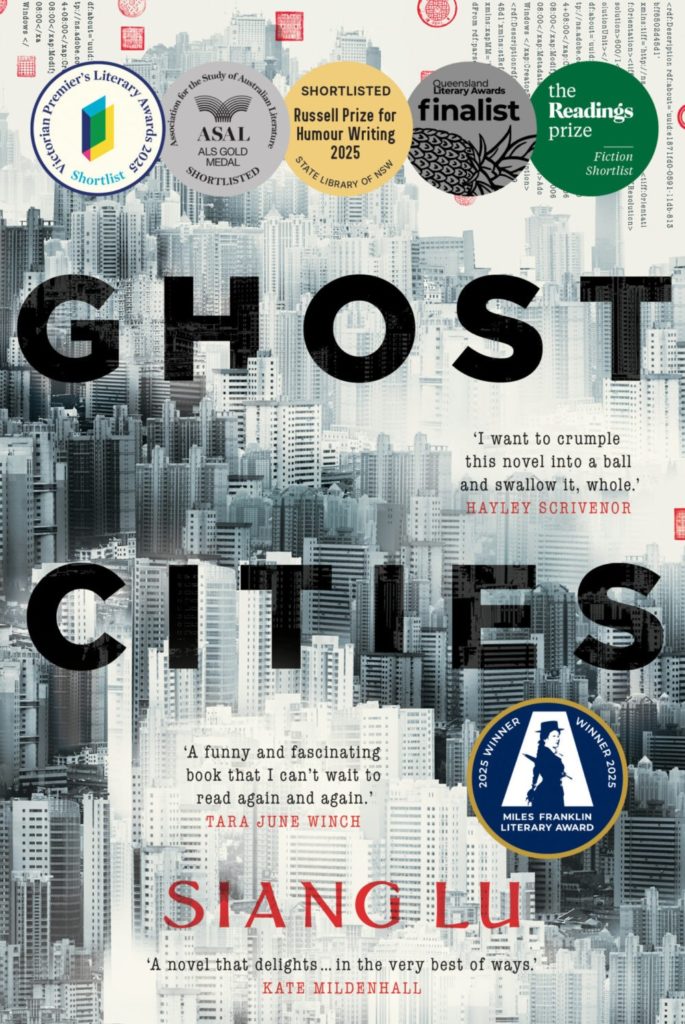BOOK REVIEW
Ghost Cities is a dazzling, genre-defying novel by Chinese Malaysian Australian author Siang Lu.
Published in April 2024 and awarded the prestigious Miles Franklin Literary Award in July 2025, it has been hailed by judges as “a genuine landmark in Australian literature”.
Blending satire, myth, speculative fiction, and metafictional artifice, this novel thrives on ambiguity and wit in exploring power, identity, art and diaspora.
Following the vacant, uninhabited megacities of China this novel has multiple narratives, including one in which a young Chinese Australian translator is fired from his job at Sydney’s Chinese Consulate after it is discovered he does not speak a word of Mandarin and has been relying entirely on Google Translate for his work.
Lu constructs his novel around two parallel narratives; the first is set in contemporary Sydney where Xiang is abruptly fired and then enters into the orbit of ostentatious film director Baby Bao.
Bao whisks Xiang away to the fictional ghost city, Port Man Tou, an empty megacity in China turned into a surreal film set populated by actors playing citizens.
How is his relocation to one such ghost city connected to a parallel odyssey in which an ancient Emperor creates a thousand doubles of Himself?
He burns every book in the Imperial Library, bans chickens, and pursues ever more absurd decrees in his megalomaniacal quest for control.
The second thread is a mythical fable set in ancient Imperial China, where Emperor Lu Huang Du ascends a throne built on paranoia and mythmaking.
The tone of the novel oscillates from mordant satire to dreamy fable, so Lu’s style draws comparisons to the fantastical inventiveness of Haruki Murakami or Italo Calvino, yet remains uniquely his own in its Australian-Chinese diasporic sensibility.
The dual‐narrative structure enables mirroring across time; modern absurdities of social media, bureaucracy, and celebrity echo classical absurdity and tyrannical folly.
The voice is delightfully chaotic and humorous without descending into frivolity, clever without becoming cold.
His satire extends beyond the film set to comment on global capitalism, cultural tokenism, and the performative nature of identity and storytelling.
Underlying the absurdity is incisive cultural commentary; Xiang’s deportation from his job and relocation to Port Man Tou becomes an allegory for cultural imposture and belonging.
Meanwhile, the Emperor’s attempt to control history by destroying and recreating texts becomes a rumination on art, storytelling, and power.
For all its absurdist trappings, Ghost Cities packs emotional and moral weight.
Ghost Cities is not just an entertaining experiment, it marks a pivotal moment in Australian literature by cantering bicultural, diasporic voices and challenging literary conventions.
Lu’s decade long struggle with over 200 rejections before the novel found a publisher is testament to the endurance behind his craftsmanship.
Julie Chessman




